Temperature: a key factor affecting sleep
Feb 21, 2024
A study published in the Journal of Physiological Anthropology explores how our thermal environment is one of the key factors affecting how we sleep.
The Effects of thermal environment on sleep and circadian rhythm, published in the journal on May 31, 2012, suggests that the impacts that temperature can have on sleep states are tightly linked to thermoregulation.
For example, people that sleep semi-nude may be more affected by cold exposure even if cold doesn’t necessarily affect sleep stages. This does not take into account the effects of bed covers and clothing, but it does highlight that cold can still impact sleep quality. In other scenarios, the study found that heat exposure can boost wakefulness.
Another study, Temperature and sleep, which was published in ScienceDirect’s Energy and Buildings on Dec. 1, 2019, suggests that there is an ideal temperature (approximately 84.2-87.8°F) for sleeping and that people use bedding and clothing (or the lack of) to help them reach that more ideal temperature.
The impact of temperature on sleep is a key reason why the SMARTDUVET features dual-zone climate control. It allows a person or a couple sleeping in the same bed to control the temperature of each side of the bed as part of their attempt to thermoregulate their immediate environment.
In terms of heating, the openings in the duvet’s layer helps eliminate the humidity to keep a person dry and warm during the night. For cooling, air circulation under your duvet is increased to boost the body’s natural evaporation process, creating a cooling effect on the body.
Thus, as people aim to thermoregulate their environment through bedding and clothing, the SMARTDUVET may prove to be an ideal partner in helping you better manage your sleep at night.
Sources:
https://jphysiolanthropol.biomedcentral.com/articles/10.1186/1880-6805-31-14
https://www.sciencedirect.com/science/article/abs/pii/S0378778819314100


